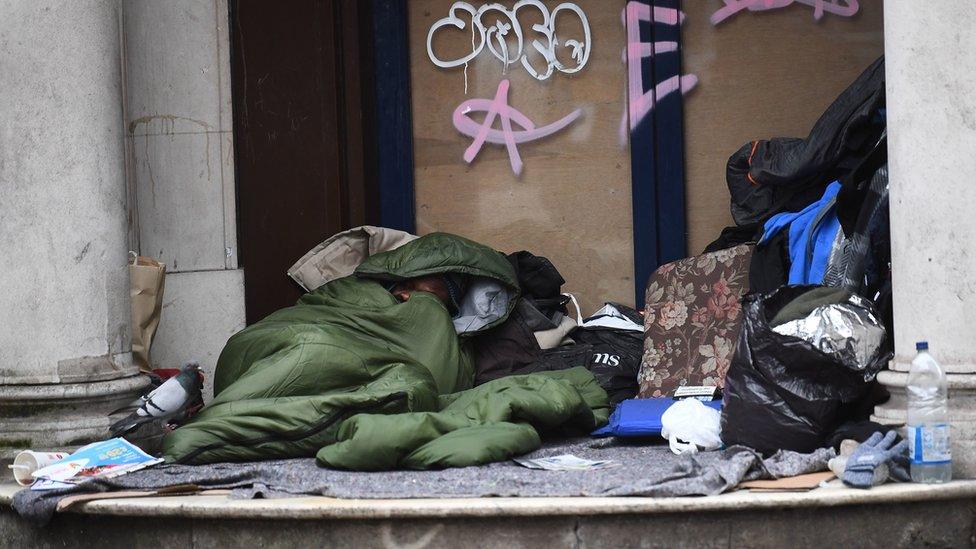Man living in Cornish layby due to housing crisis
- Published
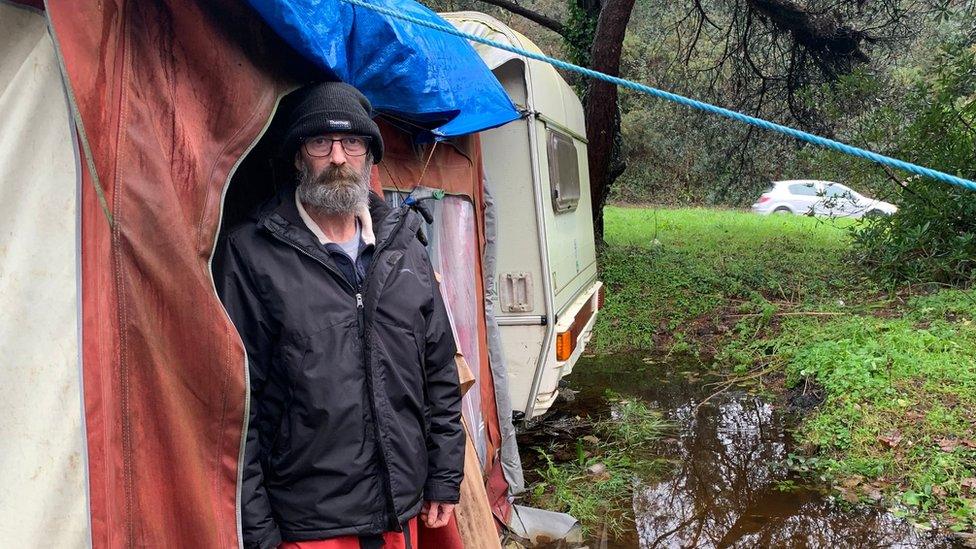
Neil Martin has been served with an illegal camping notice
A man who has been living in a caravan in a layby in Cornwall for nine months has called on authorities to do more.
Neil Martin, 51, from Redruth, said: "I'm coping but it's a bit wet, miserable and cold."
It comes as homeless charity St Petrocs said there had been a 52% increase in the number of people sleeping rough in Cornwall in the past three years.
Cornwall Council said it was continuing "to deliver initiatives to help people sleeping rough on our streets".
Mr Martin said he returned to Cornwall after living abroad for health reasons.
He said he had planned to live with a friend while looking for work but his friend had been evicted.
In April a stranger he met at a market gave him an old caravan which Mr Martin has been living in ever since.
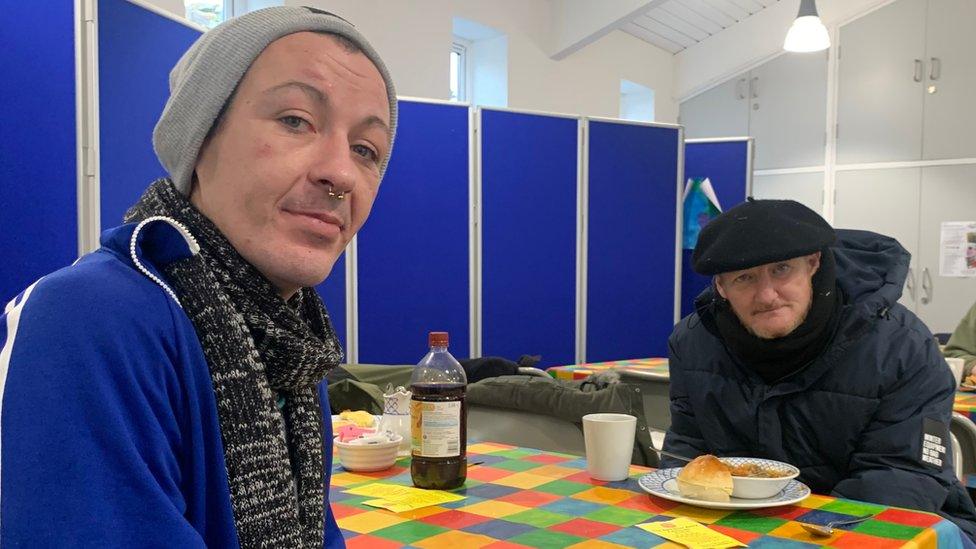
Dani and Darren visit the Salvation Army in Falmouth
"I'm hoping the council will step up and help me to get into one of their [housing] pods," he said.
"I'd like to live in a house again one day but they're so expensive - I'm worried I wouldn't be able to pay the bills."
Mr Martin has been served with an illegal camping notice by the council and told he has to move on.
His letter from the council said it would also ensure he had access to support services.
St Petrocs outreach worker Sofia Roder, who has been working with Mr Martin, said: "So many people, either through relationship breakdowns or other means, aren't able to afford renting through traditional means and then have no option but to sofa surf, rough sleep, sleep in their cars."
She said government figures were a "snapshot" of the number of people sleeping rough on any given night and did not show the full story.
"I would say that's only the tip of the iceberg.
"The amount of referrals we have coming through, the amount of people phoning up for support, there's definitely way, way more."

Statistics from St Petrocs show that in 2020-2021 - during the height of the Covid-19 pandemic - there were 372 people rough sleeping in Cornwall.
That figure rose to 567 rough sleepers for 2022-2023.
Dani, 35, used to be a nurse but started drinking after his mother died, ending up on the streets.
He said: "I was in a graveyard, sleeping rough in a tent. I've got nothing to my name now.
"I used to have dogs, a house, a car, working in a good job, and now I've got a bag with a few clothes in it."
Darren, 55, said: "It was snowing recently, -2C. I was sat in the snow all night. That was ice cold."
He said he had liver cancer.
"I've second stage cancer which is partly my own fault, through alcohol abuse when I was younger.
"I would rather be housed but the housing is so difficult."
St Petrocs, which has 23 houses across Cornwall, said in October it had helped 129 people sleeping rough and 50 "hidden homeless".
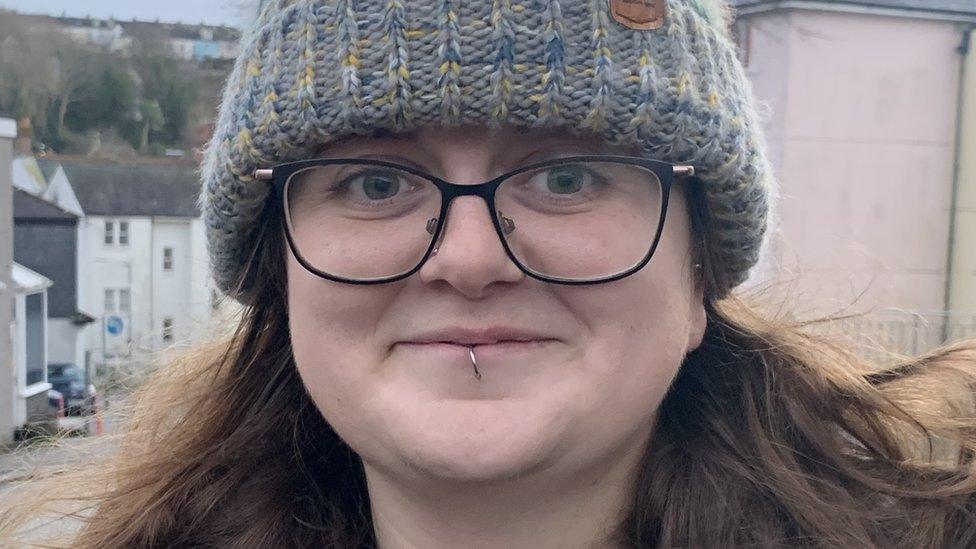
Sofia Roder said those seen on the streets were just part of the wider impact of homelessness across the county
Cornwall Council said: "We continue to deliver initiatives to help people sleeping rough on our streets as well as those who are faced with homelessness."
It also said that, among other initiatives, it has a prevention service called "Nos Da Kernow", where it could provide "brief and intensive outreach support to people who are experiencing housing difficulties which, if not addressed, may lead to them becoming homeless".
It said the service was making a difference with a "90% prevention success rate".
The Department for Levelling Up, Housing and Communities, said in a statement that it was "determined to end rough sleeping for good" and it was "working hand-in-hand with the homelessness sector and other partners to make sure people have a roof over their head and the support to rebuild their lives".
It added that councils had been given £21bn to tackle homelessness and rough sleeping and Cornwall and Devon local authorities were getting £23.2m through the Rough Sleeping Initiative from 2022 to 2025., external

Jemma Woodman, from the BBC South West Investigations team, joined St Petrocs for a day
Many will have driven past Mr Martin on a busy commuter road in Cornwall. We went to visit him in his caravan on a cold and wet December morning.
The caravan, tucked away, was donated by a stranger and left in a layby for him. Mr Martin said without it he would be living on the streets.
He said it has been a life-saver.
The St Petrocs team has helped him with blankets and pots and pans.
He is resilient and laughs as he tells me a mouse keeps eating his biscuits but he said it was a shock to end up living this way.
Staff at St Petrocs said they were doing their best to get as many people into crisis accommodation before Christmas as they could.

Follow BBC News South West on X (formerly Twitter), external, Facebook, external and Instagram, external. Send your story ideas to spotlight@bbc.co.uk, external
Related topics
- Published23 November 2023
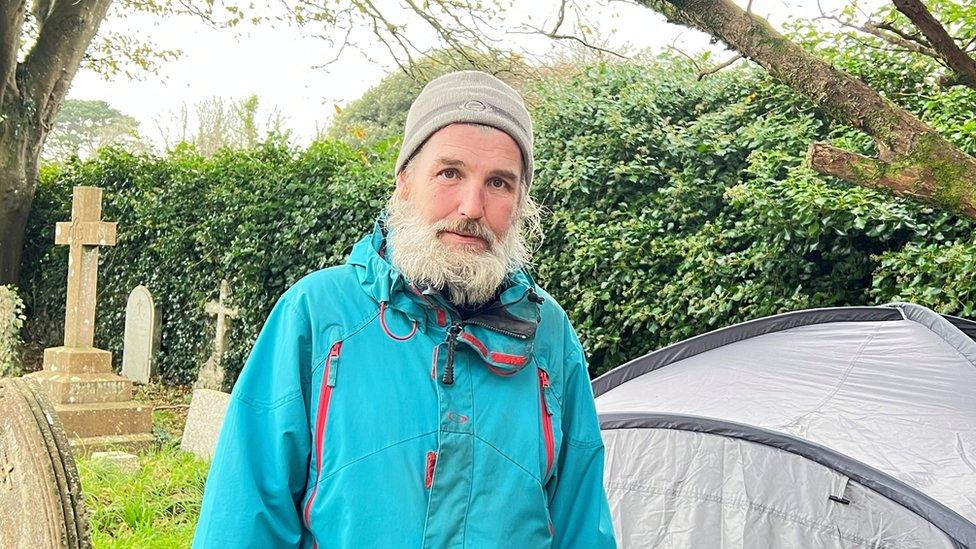
- Published14 September 2023
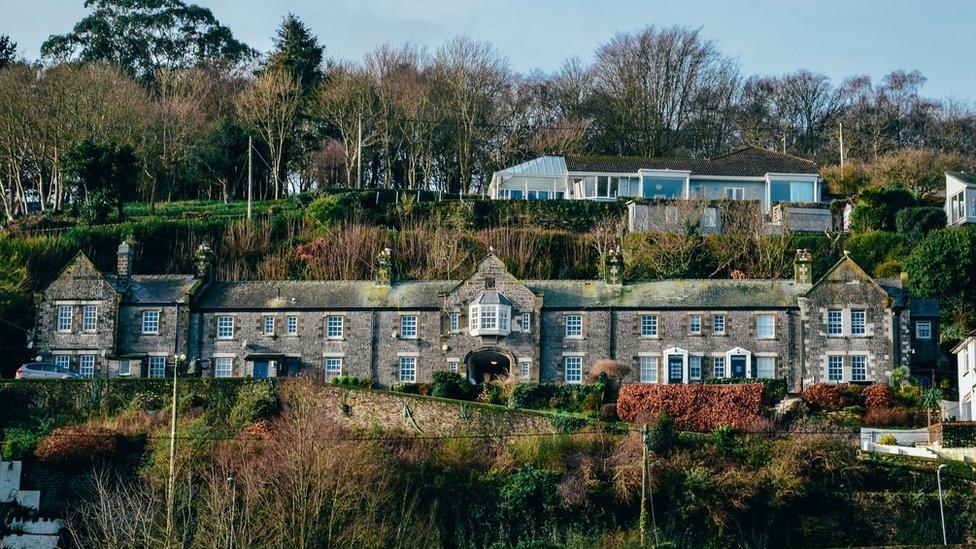
- Published7 September 2023
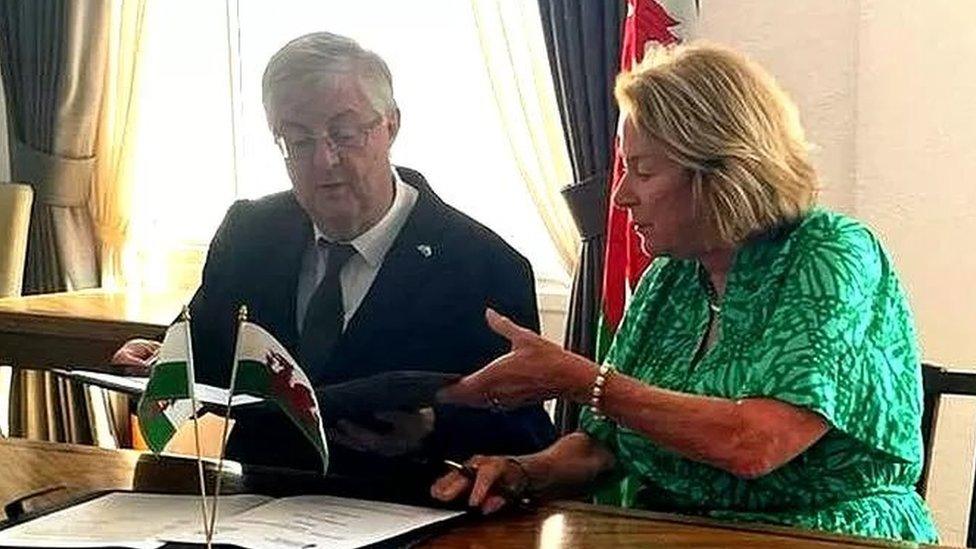
- Published31 August 2023
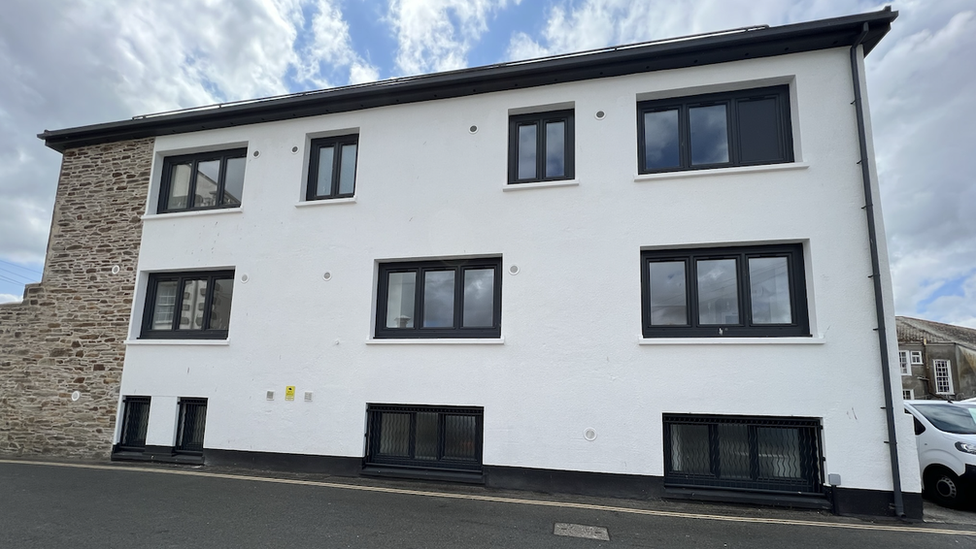
- Published24 March 2023
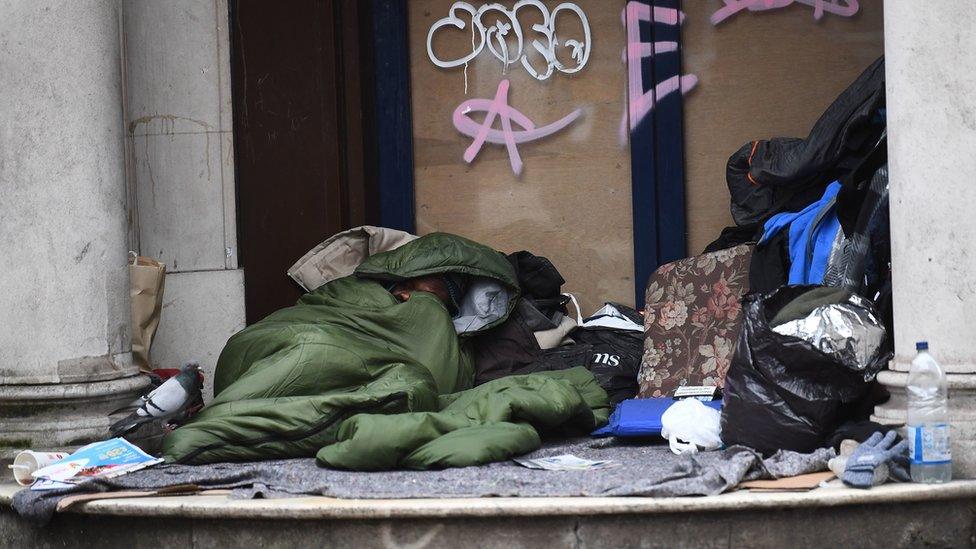
- Published11 January 2023
